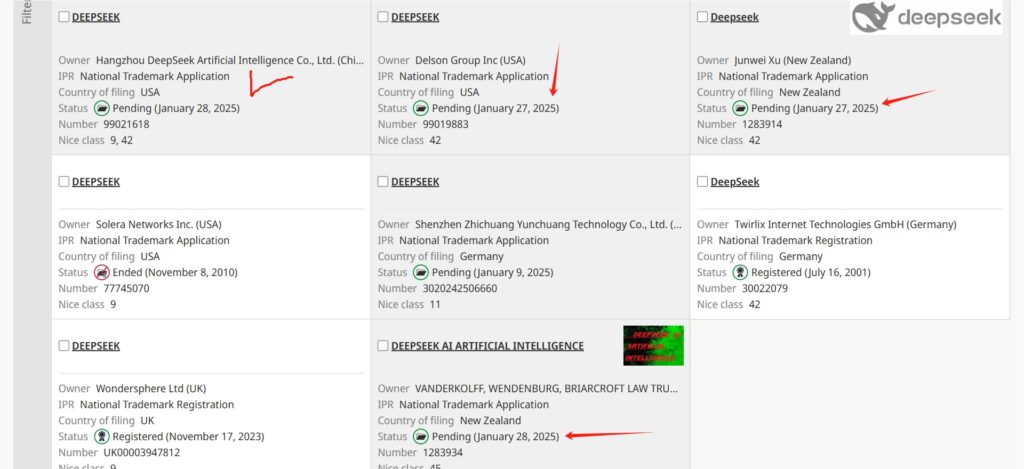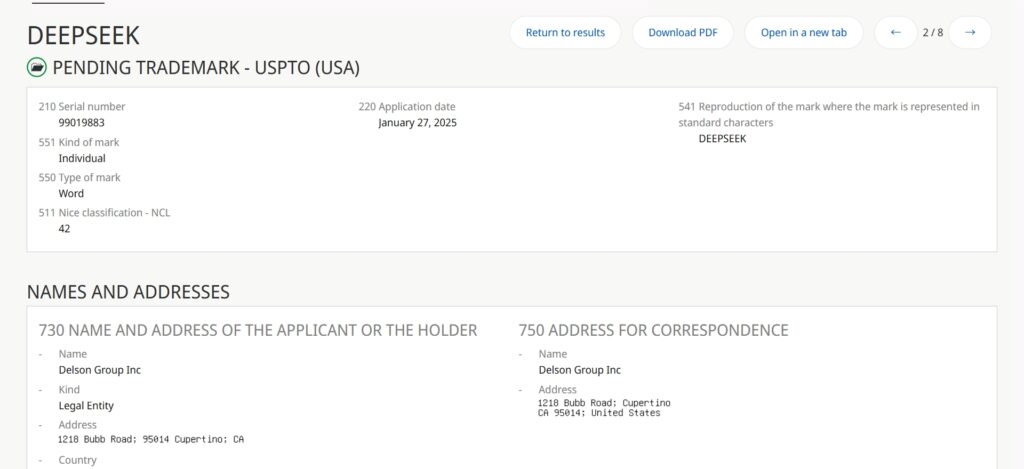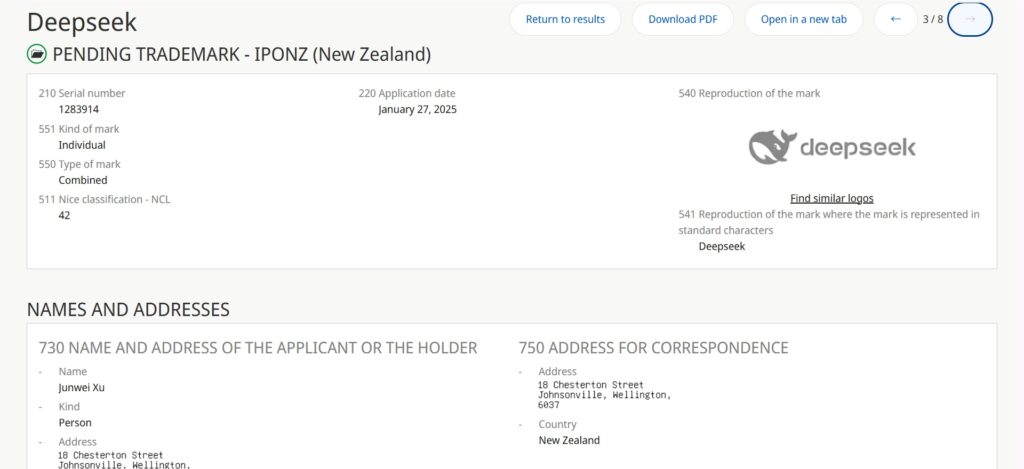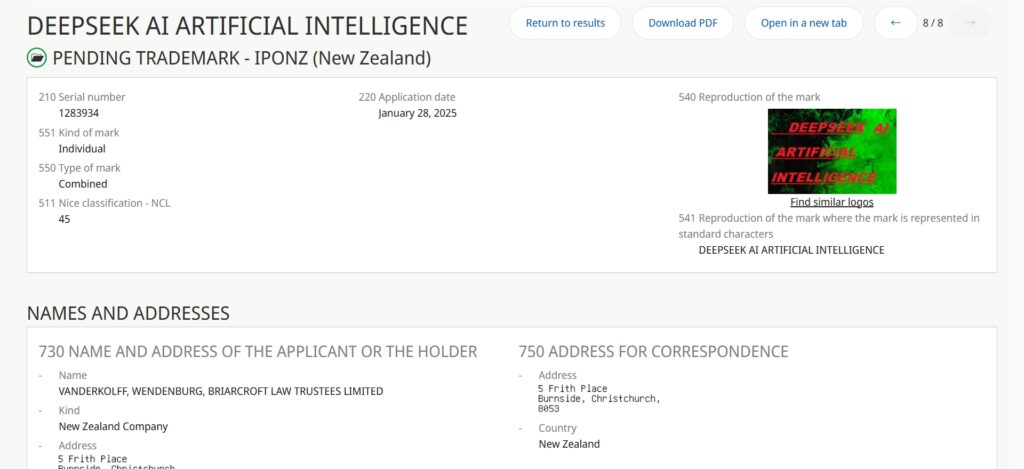As DeepSeek (Hangzhou DeepSeek Artificial Intelligence Co., Ltd.) emerges as a leading name in artificial intelligence, its groundbreaking R1 model has drawn global acclaim. However, alongside its rise to prominence, the company faces an alarming challenge: trademark squatting. We found that the “DeepSeek” trademark has been preemptively registered in countries like the United States and New Zealand, raising critical questions about brand protection in the age of globalization.
Understanding the Trademark Squatting Crisis
Launch of the R1 Model and Trademark Disputes
While the launch was celebrated in the tech world, it also triggered trademark conflicts:
- In the United States, Delson Group Inc., led by CEO Willie Lu—who shares a Zhejiang University background with DeepSeek’s founder, Wenfeng Liang—filed for the “DeepSeek” trademark (No.: 99019883, class 42).
- In New Zealand, an individual named Junwei Xu applied for “deepseek” and its logo (No.: 1283914, class 42).
- In New Zealand, a trustees company named VANDERKOLFF, WENDENBURG, BRIARCROFT LAW TRUSTEES LIMITED filed for “DEEPSEEK AI ARTIFICIAL INTELLIGENCE” (No.1283934, class 45)
These applications, under Class 42 (computer software) or Class 45 (AI legal services), occurred immediately after the R1 model’s debut, indicating deliberate preemption. See more below:




Why Trademark Squatting Happens
Experts attribute this issue to loopholes in international trademark systems and opportunistic “first-to-file” strategies. Squatters exploit these gaps to profit through opposition, lawsuits, or even selling back trademark rights to the original brand owner. This issue is not unique to DeepSeek; many global brands face similar risks during their international expansion, highlighting the urgent need for robust trademark strategies.
The Impact of Trademark Squatting on DeepSeek
Trademark squatting poses significant risks to DeepSeek’s global expansion:
- Brand Confusion: Squatters could operate under similar names, misleading consumers and damaging DeepSeek’s reputation.
- Increased Legal Costs: Combating squatters through opposition or litigation is both time-intensive and costly.
- Market Entry Challenges: Trademark disputes may deter investors, partners, and customers, delaying DeepSeek’s entry into key markets.
How to Combat Trademark Squatting: Legal Remedies and Strategies
Domestic Legal Solutions
Take China as an example, DeepSeek can rely on the following measures:
- Trademark Opposition: DeepSeek can file opposition (or invalidation requests if the opposition fails) against squatted trademarks, on the grounds of prior use (Art. 32) or bad faith filing (Art. 4) of China’s Trademark Law.
- Unfair Competition Claims: DeepSeek can initiate lawsuits to stop registration on the ground of violating the principle of good faith under Art. 2 of China’s Anti-Unfair Competition Law.
International Protection Measures
To secure trademarks internationally, companies often turn to the Madrid Agreement and Protocol. However, this system has its challenges:
- Varied National Examination: International filings do not guarantee protection in all target countries, as each country applies its own review standards.
Advises for Startups Like DeepSeek
To navigate the complex global trademark landscape, DeepSeek and similar companies should prioritize the following:
- Register Trademarks Early: Secure international trademark application in core markets BEFORE product launches.
- Implement Monitoring Systems: Develop a dedicated team to track trademark applications globally and respond swiftly to squatting attempts.
- Preserve Earlier Use Proof: To prove the squatter’s intention to piggyback, the applicant should try to preserve evidence of use even if the mark has not been registered, such as on a neutral third-party platform.
- Negotiate with Squatters: In some cases, coexistence agreements or trademark transfers can be cost-effective alternatives to litigation.
Conclusion
The trademark squatting incidents involving “DeepSeek” underscore the critical importance of proactive brand protection for technology companies. By integrating legal, technical and commercial measures, DeepSeek can safeguard its innovations and strengthen its global footprint for Chinese tech brands.
If you plan to protect your brand in China or from China, feel free to reach out to us.

